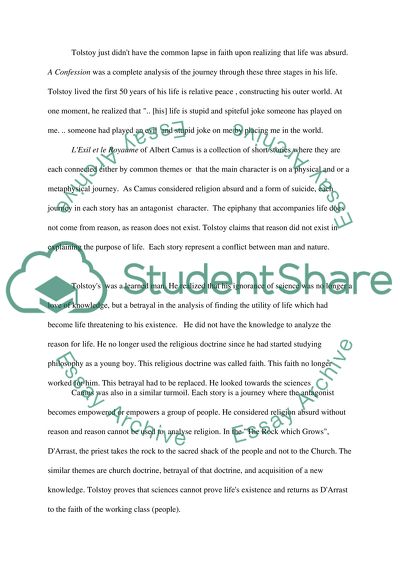Cite this document
(“Tolstoy VS Camus Essay Example | Topics and Well Written Essays - 1250 words”, n.d.)
Retrieved from https://studentshare.org/literature/1422568-tolstoy-vs-camus
Retrieved from https://studentshare.org/literature/1422568-tolstoy-vs-camus
(Tolstoy VS Camus Essay Example | Topics and Well Written Essays - 1250 Words)
https://studentshare.org/literature/1422568-tolstoy-vs-camus.
https://studentshare.org/literature/1422568-tolstoy-vs-camus.
“Tolstoy VS Camus Essay Example | Topics and Well Written Essays - 1250 Words”, n.d. https://studentshare.org/literature/1422568-tolstoy-vs-camus.


